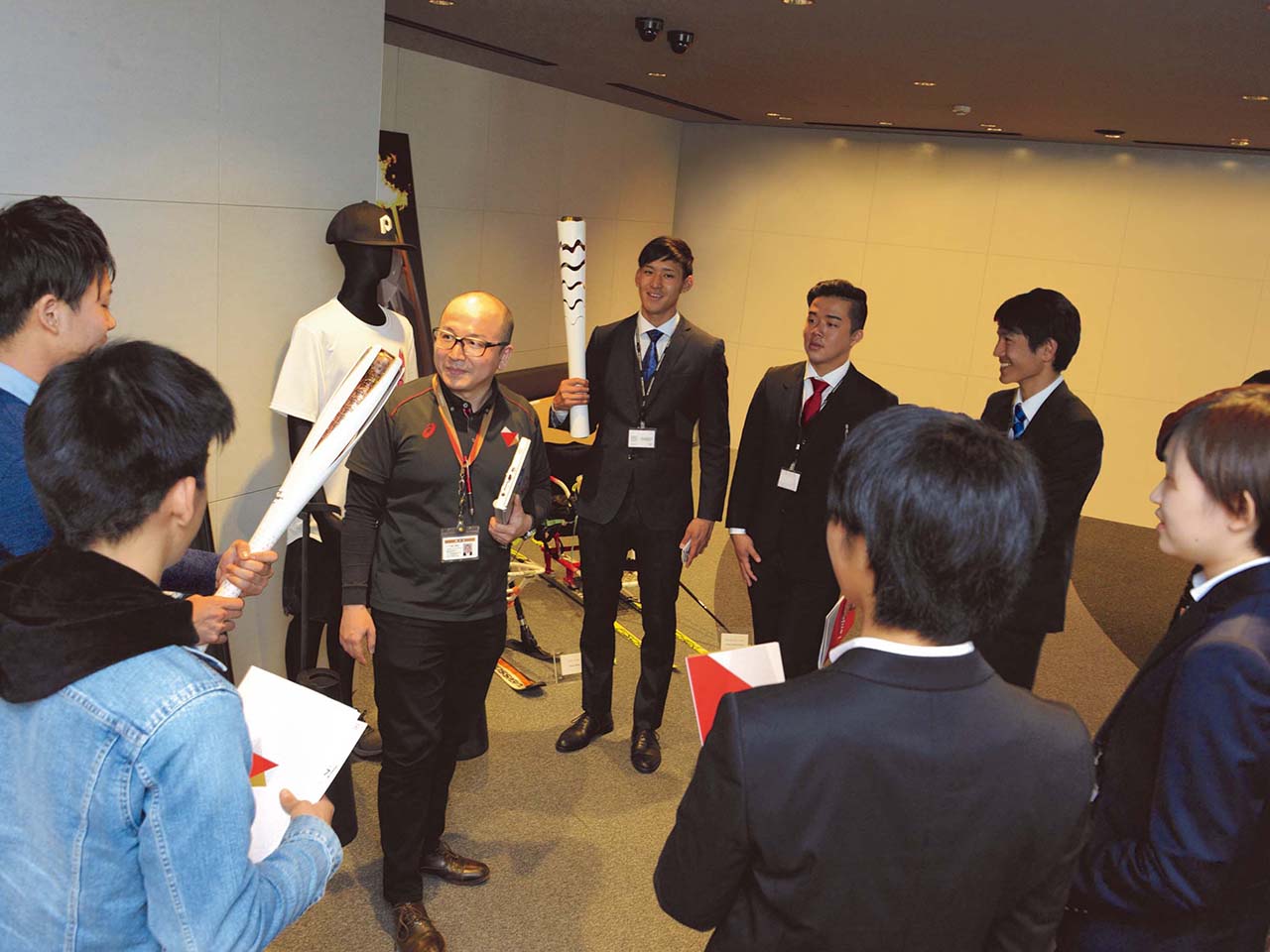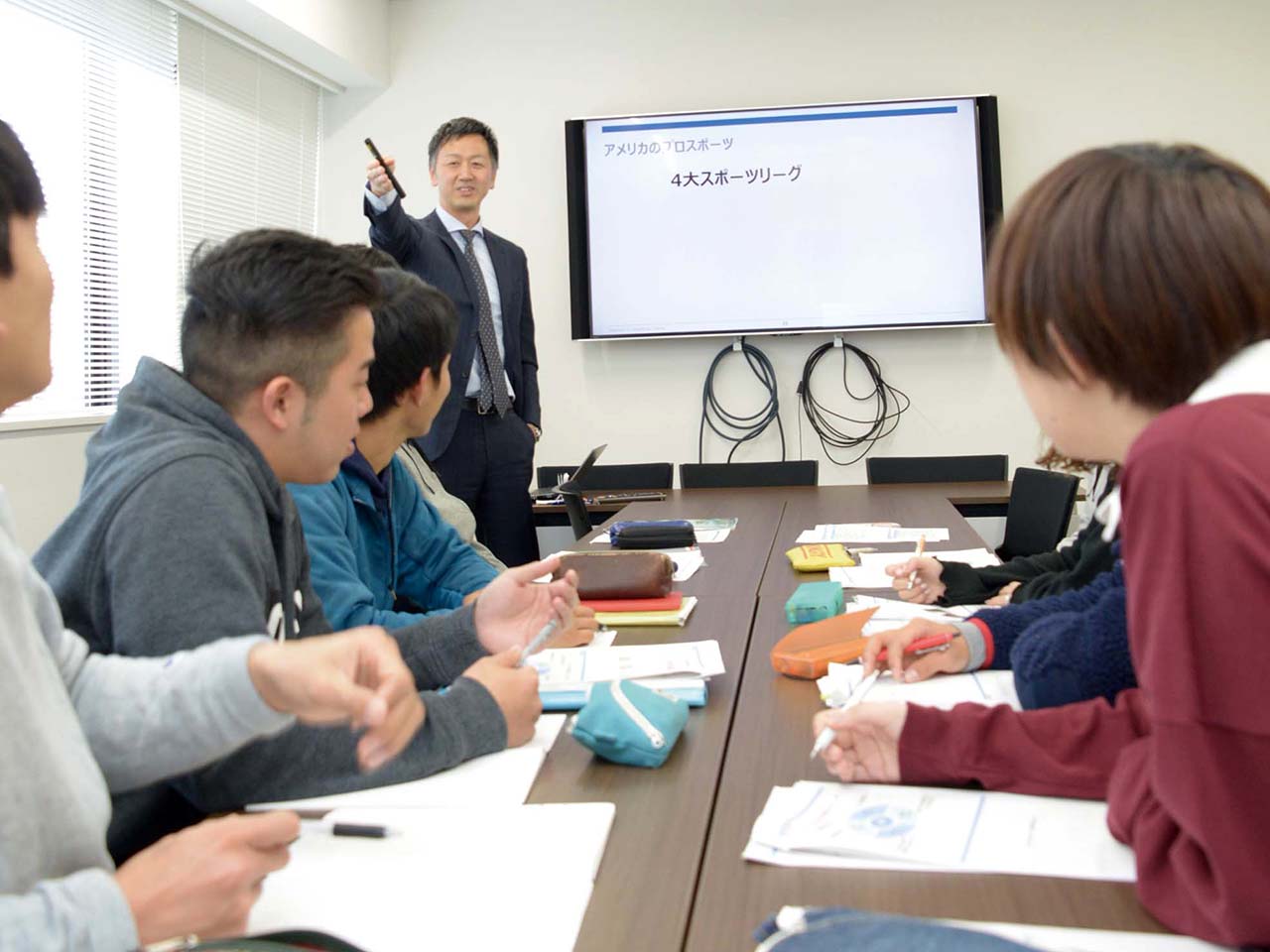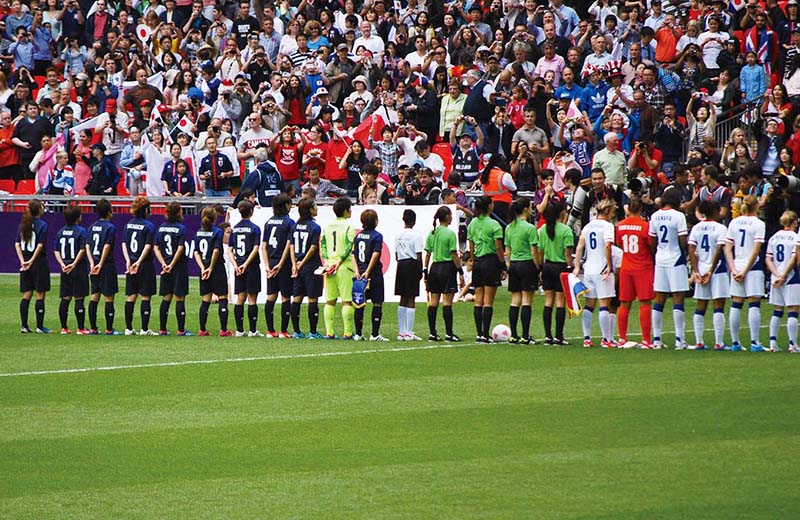
Department of Sport Management
Management is an engine that propels sports.
As sport management has become such a crucial function in recent years, competent sport management professionals are currently in high demand across the sports industry. As such, the entire industry is vying for professionals that are adept at leveraging
the value of existing sports, seek out and identify potential business opportunities that lurk in various sporting events around the world, and promote those sports to the next level. The Department of Sport Management’s curriculum is designed to teach
such knowledge and skills that allow the students to manage sports in a competent manner, and join and immediately thrive in the sports industry after graduation.
| Curriculumduration: | Four years |
| Academicdegree: | Bachelor (Physical Education) |
| Class size: | 145 students |
| Graduation requirement: | 124 credits at least |
Career paths and qualifications
Typical career paths
- Sports-related companies
- Professional-sports-related jobs
- Employees of sports organizations
- Public administration staff in sports
- Sports club staff of various types
- Junior and senior high school teachers (health and physical education), etc.
Licenses and qualifications that may be obtained
- Junior high school class-1 teacher license (health and physical education)
- Senior high school class-1 teacher license (health and physical education)
- Entry-level and intermediate-level para-sports instructor
- Certified assistant manager (eligibility for examination)
- Physical exercise facility manager (eligibility for examination)
- Physical exercise facility operator (eligibility for examination)



Key departmental features
Understand sport management.
 As one’s correct understanding of what sports and management are forms the foundation upon which its subsequent learning of sport management properly occurs, those aspiring to join the industry and promote sports must possess especially wide-ranging knowledge
and a wealth of experience on sports. The Department’s curriculum, which includes theoretical courses on sports science and practical courses that involve diverse sporting activities, allows the students to learn about various sports in depth, and study
management in upper-level courses where leading management theories are taught, so that the optimal foundation of knowledge as described above can be formed.
As one’s correct understanding of what sports and management are forms the foundation upon which its subsequent learning of sport management properly occurs, those aspiring to join the industry and promote sports must possess especially wide-ranging knowledge
and a wealth of experience on sports. The Department’s curriculum, which includes theoretical courses on sports science and practical courses that involve diverse sporting activities, allows the students to learn about various sports in depth, and study
management in upper-level courses where leading management theories are taught, so that the optimal foundation of knowledge as described above can be formed.
Explore various corners of the sports industry.
 As the sports industry is now considered a high-growth space, it encompasses various business fields, in each of which a specific set of knowledge and theories must be applied. As the sports industry also includes wide-ranging business operations such
as sport clubs, sporting events, sports facilities, leisure sports, etc., one must understand its breadth and commit to studying management that is suitable for each of these niche segments. To this end, the curriculum allows the students to gain sport
management expertise in their areas of specialization, and acquire the essential skill for identifying new business opportunities.
As the sports industry is now considered a high-growth space, it encompasses various business fields, in each of which a specific set of knowledge and theories must be applied. As the sports industry also includes wide-ranging business operations such
as sport clubs, sporting events, sports facilities, leisure sports, etc., one must understand its breadth and commit to studying management that is suitable for each of these niche segments. To this end, the curriculum allows the students to gain sport
management expertise in their areas of specialization, and acquire the essential skill for identifying new business opportunities.
Put sport management to practice.
 The most crucial skill required of a professional working in sport management is its ability to effectively deal with diverse issues that constantly arise, by leveraging its wealth of knowledge and understanding of theories. As the curriculum includes
the demonstrative and practicum courses that are designed to provide the students with the type of hands-on experience in sports business that allows them to identify key issues and formulate solutions, while collaborating with colleagues,such learning
experience enables the students to clearly chart their career paths, integrate theories and practical skills, and start performing at their full potential upon graduating university.
The most crucial skill required of a professional working in sport management is its ability to effectively deal with diverse issues that constantly arise, by leveraging its wealth of knowledge and understanding of theories. As the curriculum includes
the demonstrative and practicum courses that are designed to provide the students with the type of hands-on experience in sports business that allows them to identify key issues and formulate solutions, while collaborating with colleagues,such learning
experience enables the students to clearly chart their career paths, integrate theories and practical skills, and start performing at their full potential upon graduating university.
Department’s academic aim
Develop sport management competency based on the sports industry’s requirements.
The Department of Sport Management’s academic program is designed to allow the students to learn about history, society, government policies, laws, economy, business administration, etc. as it pertains to sports, and to make sure that they are equipped
with the essential knowledge of accounting, organization, and management strategy to effectively manage the business operations they will be entrusted with in the future. Furthermore, the program includes courses specializing in different sections of
the sports industry, such as professional sport clubs, sporting events, and sports facilities. Moreover, there are also demonstrative and practicum courses involving actual sports performance, sports education, and sport management, through which the
students can gain practical learning experience and develop the competency they need to become leading professionals in the sports industry.Sample courses
Reflect on sports as business.
Key features of this practical course
Sport Management Theories
Instructor: Takashi SaitoKey features of this practical course
- Such interdisciplinary study of sports and business possible only at NSSU
- In-depth knowledge of marketing also taught using case studies
- Application of management perspective can turn familiar club activities into the objects of fieldwork.

Sports Marketing Theories
 Learn marketing and how to deliver higher value added through merchandise and services in the context of sports.
Learn marketing and how to deliver higher value added through merchandise and services in the context of sports.
In this course, the students are taught to formulate methods with which the value of sports can be delivered to the fans and practitioners, based on their understanding of what satisfactory sport life might be to those people in terms of merchandise and services.
The course involves not only the study of basic marketing knowledge but also use of audio-visual teaching material, surveys, analysis, and group work. At the end of the course, the students will be tasked with drafting and presenting marketing plans of their own.
Sports Business On-Sight Practicum (including pre- and post-practicum instructions)
 Sharpen practical management competency at the forefront of sports business.
Sharpen practical management competency at the forefront of sports business.
In this course, the students go on a practicum lasting five days or so, working for sports equipment and other goods manufacturers, event operation companies, professional sports teams, sports organizations, etc. Such immersive experience in the actual operations of sports business provides the students with opportunities to gain firsthand insight into sports-related companies’ management strategies and their customers’ needs, and enhance the students’ practical sport management skills, which is helpful for their career progression post-graduation.
Sports Business Theories
 Reflect on the expected roles of sports from business standpoint.
Reflect on the expected roles of sports from business standpoint.
This course allows the students to contemplate on the roles that sport is expected to play in today’s society, as well as its untapped potential, from a business perspective. It delves into specific professional sports that have become successful businesses in Japan, such as baseball, soccer, sumo, golf, etc. to examine why that is the case. It also uses the case of J.League to examine the anatomy of a successful professional sport business model in detail, after which the students draft their own business plans.